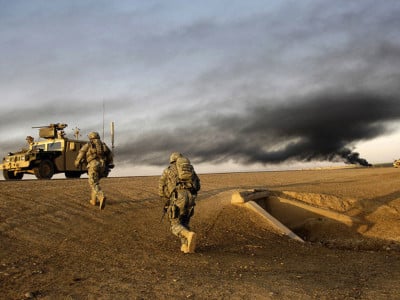
Sept. 11, 2001 marks a milestone that changed the map of stability throughout the world. Although 18 years have passed since the attacks on the World Trade Center in New York and the Pentagon in Washington, D.C., there are still many facts missing from the pages and documents telling the history of this date.
One of the missing accounts relates to the trial of Khalid Sheikh Mohammed, the mastermind of the Sept. 11 attacks, nearly 18 years after the operation.
What is the significance of the fact that this mastermind’s trial is beginning after three successive presidents – George W. Bush, Barack Obama and Donald Trump – have become president? Why did the U.S. military judge set 2021 as the year to prosecute one of the most dangerous terrorists the world has ever known? Why did former President Obama fail both to prosecute suspects and close the Guantanamo Bay military prison despite guaranteeing he would do so in both of his presidential campaigns?
This raises numerous questions about dealing with terrorists suspected in the Sept. 11 attacks. Despite the fact that the United States spent $6 trillion, sent thousands of troops to occupy Afghanistan in 2001 and Iraq in 2003, and lost thousands of American soldiers to injuries and death, we stand amazed and astonished at America’s actions with respect to terrorist organizations. On the other hand, we are also shocked at how the growth of these terrorist groups and their attempts to revitalize themselves, especially since there is selectivity in the war on terror. Many Western countries focus their wars on some of these organizations while overlooking others.
Moreover, some countries adopt the approach of political recruiting in order for extremist groups to achieve their goals. For example, there are more than 8,000 foreign fighters in Idlib, Syria, which confirms that this strategy is taking place. Those fighters need money, support, training, containment and weapons. Where do they get all this?
The most serious issue relates to financing. Despite the fact that the January 2015 United Nations Security Council resolution based on Chapter 7 of the U.N. Charter prohibits the funding of terrorist organizations, financing and support for terrorists is continual and sustainable. Yet, not one of the countries known to support and finance terror has been touched by sanctions.
What gives pause in reading the accounts about the return and proliferation of terrorist organizations is the lack of ideological confrontation, especially since ideology is the most dangerous weapon in confronting extremism. But most unfortunately, the cultural and ideological elite in domestic and foreign institutions and state departments have not dealt with this issue despite its utmost importance especially among younger generations whose minds are being toyed with by organizations such as the Islamic State and al-Qaida.
All the changes that the world has experienced by confronting terrorism have opened new space for terrorist groups to return and expand in different forms, such as the situation we witnessed in Syria and Iraq, where the Islamic State group is refocusing on new strategic activity, methodology, and different ideas. According to U.N reports, the European Union and the U.S. Defense Department, terrorist organizations today are even more fierce than they were in 2001 and pose an even greater threat to global peace and stability.
Finally, 18 years after the events of Sept. 11, after a failure to completely eradicate terrorism, and amid heightened concerns about an expansionary return of this danger, the world needs an approach and a different strategic vision commensurate with the changes of the era and the new tools being used to commit terrorism.

Leave a Reply
You must be logged in to post a comment.